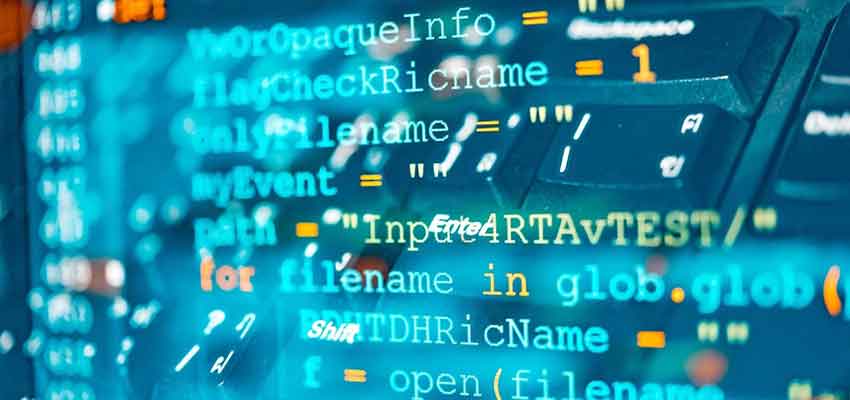Show:
What You Should Know About Coding
Whenever anyone mentions programmers, we always get an image of a person slouching in front of their computer in a dark room. If you’re brave enough to come closer, you’ll be met with thick-rimmed glasses and circles upon circles of eye bags. It can be difficult for many people to understand just what would motivate a programmer to work on a code 24/7; but those in the trade know better. There are few things in life that can give the same euphoria that a programmer feels when their code works. Once it does, they feel like they’re invincible; they can carry out any kind of project and nothing can stop them – until the program breaks down.
Understanding the thrill that comes with coding can be difficult, but it’s necessary if you’re thinking of dedicating your life to the process. Before you start your programming journey, here are a few things you should know about coding in advance.

The Learning Process is not Linear
Patience is a virtue you’ll become all too familiar with on your coding journey. You’ll have to be patient; otherwise, you won’t live to see the code working. If it’s only having patience until the code works, though, it might have been easy. You’ll only have to keep following linear steps until you build your knowledge, as is the case with any subject. Coding is not like any other subject, though.
The learning curve of coding is anything but linear; you may very well keep studying and practicing for weeks and still feel as lost as you’ve been feeling on day one. The only thing you have gained is a ton of frustration building up. However, that’s how you know you’re on the right track. You have been learning, you just don’t realize it yet. You’ll soon come across a moment when the light bulb goes on and all the dots connect perfectly in your mind.
To become an effective programmer you need to learn data structures and algorithms, and it’s essential to master Big O notation to ensure you are writing effective code. These concepts are also required in coding interviews and will enable you find jobs at tech companies.
It Starts with a Solid Foundation
Every subject-matter expert started just like you: without any inkling of what they should be doing. While you can certainly start learning to code and pick up your knowledge as you go, your journey will be much easier if you start with learning the basics first. Coding is extremely complicated, even the basic level subjects can sound like gibberish to you if you don’t have any previous background.
To make it easier for you to understand the terms and improve your chances of commitment, you’ll do yourself a great favor by following the advice of the programming experts at VentureLessons.com and start with the basics first. You can find a lot of invaluable online resources for free to help you learn the core of computer science, an introduction to coding languages, and the requirements for each course you’ll study throughout your journey. Once you get the basics down, it’ll be much easier for you to connect the dots down the road.
Get Ready to be Lost
So you’ve got the basics down and now it’s time to write some magical lines. You open the program, you follow instructions to the letter, and everything looks peachy. You’re feeling like a coding ninja by now, so you decide to write a code based on the things you’ve just learned. There’s only a tiny little issue: the code is not working.
You go back and inspect every line, but it’s still not working. You open books, references, online guides – and it’s still not working. You keep playing in the lines and then, all of a sudden, it starts working. You don’t feel so good about it though, since you have no idea why it started working all of a sudden – but, you know what? You’ll need to learn to embrace this emotional rollercoaster since coding is all about getting lost in the process. Your program will break down more often than operate, your code will make absolutely no sense, and you’ll lose your wits if you get stuck on these little things.

Technology is Always Evolving
If you’ve decided to pursue programming as a career, then you should get ready to bid the bubble of the comfort zone farewell. You’ll certainly need to keep practicing, making objects, defining methods, and designing websites, but you’ll need to stay on top of the latest trends and updates. As a whole, technology is evolving at an exponential speed in all fields, and the coding one is especially full of new changes and developments. The best way to stay sharp and on top of these trends is to get engaged with the thriving culture and connect to peers from all around the globe.
Distractions Will Bombard You
The more you expand your circle, the more diversity you’ll face. You’ll start meeting programmers of all backgrounds, experiences, and skill sets. Each one will have their own preferences and advice. If there’s one thing you should be aware of once you get involved in the culture, then it’s to stay focused on your track. If you decide to ask for advice, you’ll get a myriad of advice about all the languages you’re not learning and you should start learning them right away. Keep this advice in mind, but be sure to stay focused and not lose sight of the track you’re currently walking. Finish what you’d started first and then learn the next best thing.
You’ll Need to Sharpen Your Skill Set
Coding is not just about learning languages and writing lines. To become a full-fledged programmer, you’ll have to transform your mindset by adopting a new set of skills. You’ll start by diving into problem-solving skills and the best ways to express yourself. You’ll move from there to developing self-reliance, logical thinking, attention to detail, abstract thinking, memory skills, scientific thinking, communication, and empathy. You’ll also develop a strong sense for recognizing stupidity, which will only be as strong as the number of mistakes you’ve made.
Coding is more than just a job. It’s a life-skill that will gradually shape up every part of your life. You’ll soon realize how every skill you’ve learned throughout your coding journey can be implemented in real-life to get you more accurate, efficient, and convenient results. But first, you’ll have to be prepared to go the extra mile.

 Return to Previous Page
Return to Previous Page








